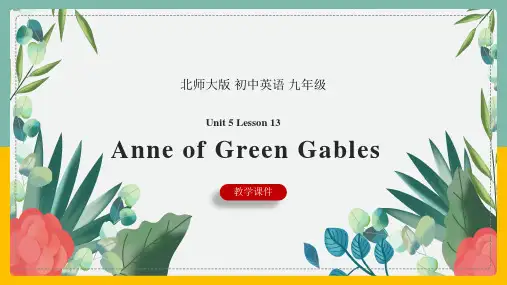锐普PPT演世界第6季《IN词百科》
- 格式:pptx
- 大小:2.71 MB
- 文档页数:9
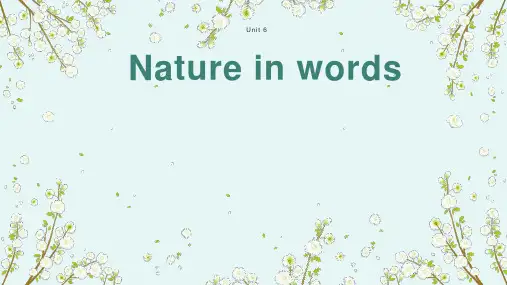

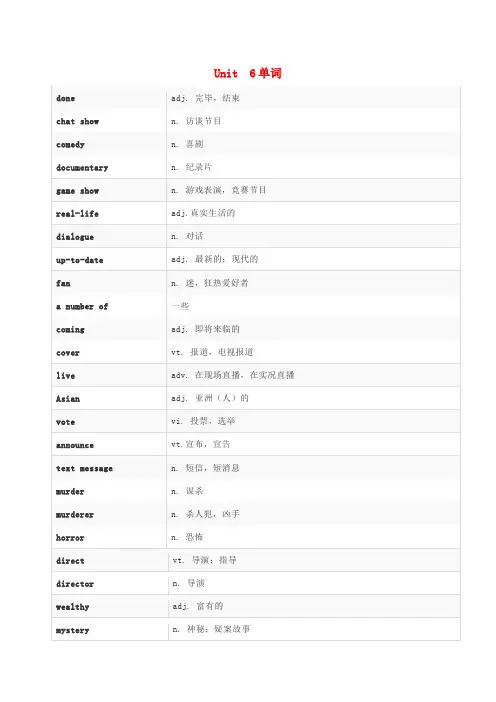
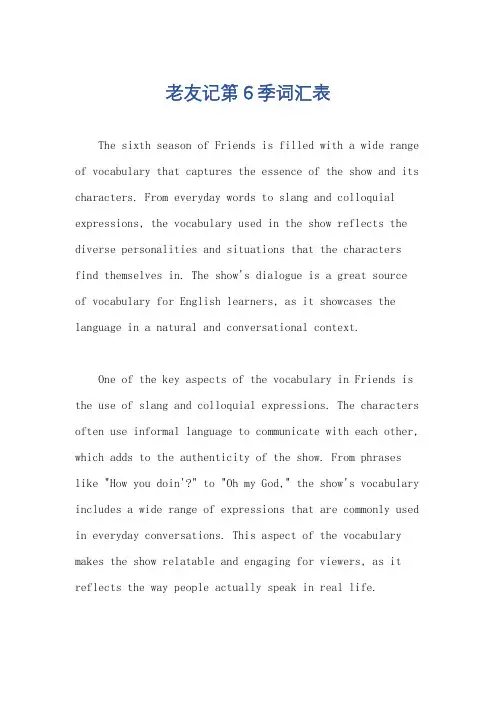
老友记第6季词汇表The sixth season of Friends is filled with a wide range of vocabulary that captures the essence of the show and its characters. From everyday words to slang and colloquial expressions, the vocabulary used in the show reflects the diverse personalities and situations that the characters find themselves in. The show's dialogue is a great source of vocabulary for English learners, as it showcases the language in a natural and conversational context.One of the key aspects of the vocabulary in Friends is the use of slang and colloquial expressions. The characters often use informal language to communicate with each other, which adds to the authenticity of the show. From phrases like "How you doin'?" to "Oh my God," the show's vocabulary includes a wide range of expressions that are commonly used in everyday conversations. This aspect of the vocabulary makes the show relatable and engaging for viewers, as it reflects the way people actually speak in real life.In addition to slang and colloquial expressions, the show's vocabulary also includes a variety of everyday words and phrases. The characters often discuss topics such as relationships, work, and social events, which introduces a range of vocabulary related to these themes. For example, words like "date," "job," and "party" are frequently used in the show, providing English learners with practical vocabulary that they can use in their own lives.Furthermore, the show's vocabulary also includes a number of cultural references and idiomatic expressions. The characters often make references to popular culture, such as movies, music, and celebrities, which introduces viewers to new vocabulary and ideas. Additionally, the show's use of idiomatic expressions adds depth to the vocabulary, as it showcases the nuances of the English language and how certain phrases are used in specific contexts.Moreover, the show's vocabulary reflects the personalities of the characters and the dynamics of their relationships. Each character has their own unique way ofspeaking, which is reflected in the words and expressions they use. For example, Joey often uses humorous and playful language, while Ross tends to use more academic and intellectual vocabulary. This diversity in the vocabulary adds depth to the show and allows viewers to explore different styles of communication.Overall, the vocabulary in the sixth season of Friends is rich and diverse, offering English learners a wide range of words and expressions to explore. From slang and colloquial language to everyday words and cultural references, the show's vocabulary captures the essence of natural, conversational English. By watching the show and paying attention to the dialogue, viewers can expand their vocabulary and gain a deeper understanding of the language in a fun and engaging way.。

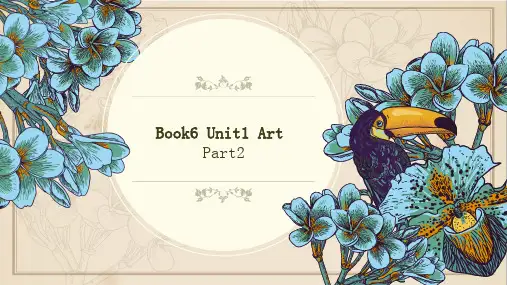



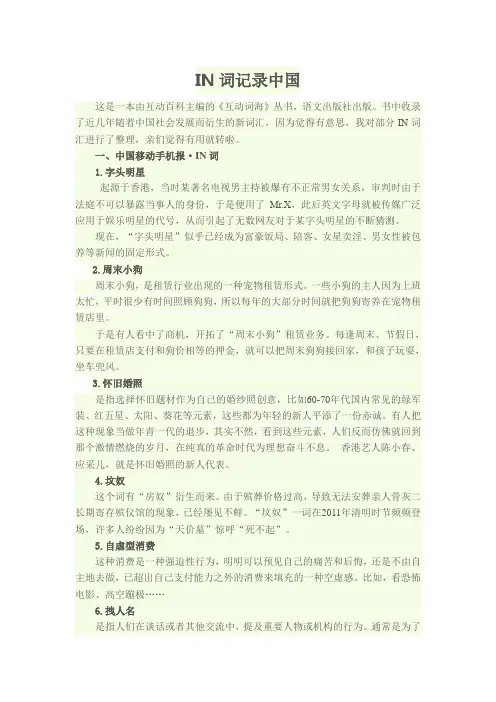
IN词记录中国这是一本由互动百科主编的《互动词海》丛书,语文出版社出版。
书中收录了近几年随着中国社会发展而衍生的新词汇,因为觉得有意思,我对部分IN词汇进行了整理,亲们觉得有用就转啦。
一、中国移动手机报·IN词1.字头明星起源于香港,当时某著名电视男主持被爆有不正常男女关系,审判时由于法庭不可以暴露当事人的身份,于是便用了Mr.X,此后英文字母就被传媒广泛应用于娱乐明星的代号,从而引起了无数网友对于某字头明星的不断猜测。
现在,“字头明星”似乎已经成为富豪饭局、陪客、女星卖淫、男女性被包养等新闻的固定形式。
2.周末小狗周末小狗,是租赁行业出现的一种宠物租赁形式。
一些小狗的主人因为上班太忙,平时很少有时间照顾狗狗,所以每年的大部分时间就把狗狗寄养在宠物租赁店里。
于是有人看中了商机,开拓了“周末小狗”租赁业务。
每逢周末、节假日,只要在租赁店支付和狗价相等的押金,就可以把周末狗狗接回家,和孩子玩耍,坐车兜风。
3.怀旧婚照是指选择怀旧题材作为自己的婚纱照创意,比如60-70年代国内常见的绿军装、红五星、太阳、葵花等元素,这些都为年轻的新人平添了一份赤诚。
有人把这种现象当做年青一代的退步,其实不然,看到这些元素,人们反而仿佛就回到那个激情燃烧的岁月,在纯真的革命时代为理想奋斗不息。
香港艺人陈小春、应采儿,就是怀旧婚照的新人代表。
4.坟奴这个词有“房奴”衍生而来。
由于殡葬价格过高,导致无法安葬亲人骨灰二长期寄存殡仪馆的现象,已经屡见不鲜。
“坟奴”一词在2011年清明时节频频登场,许多人纷纷因为“天价墓”惊呼“死不起”。
5.自虐型消费这种消费是一种强迫性行为,明明可以预见自己的痛苦和后悔,还是不由自主地去做,已超出自己支付能力之外的消费来填充的一种空虚感。
比如,看恐怖电影、高空蹦极……6.拽人名是指人们在谈话或者其他交流中,提及重要人物或机构的行为。
通常是为了在某个社会阶级中确立自己的地位,通过提高自己的地位来建立一种优越感。
